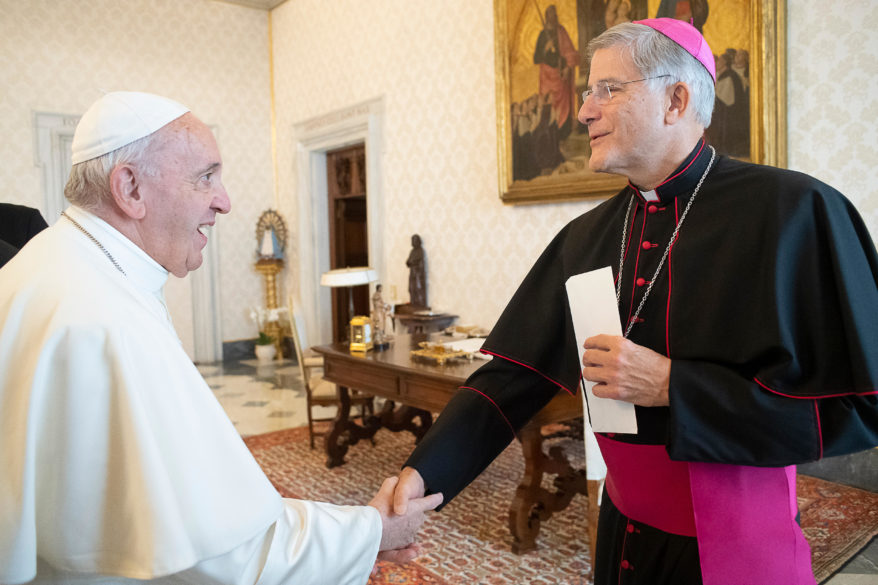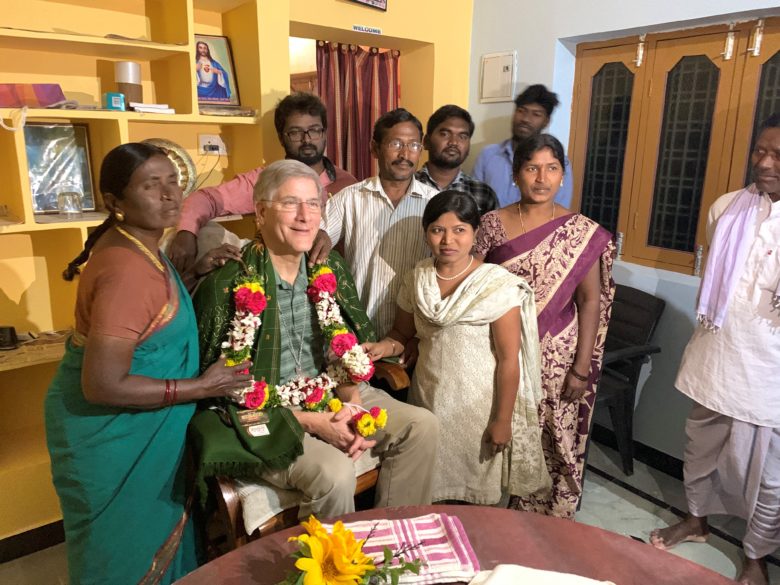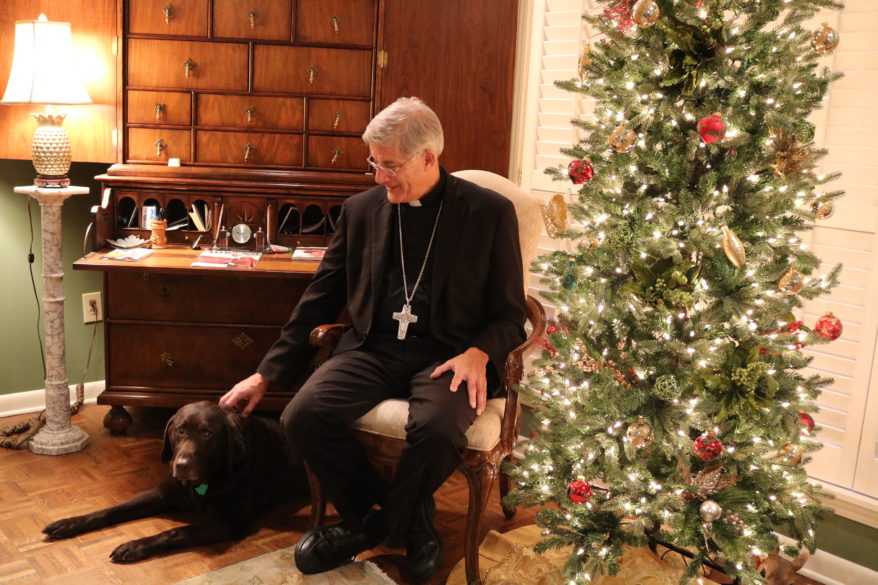If God’s word could land on the fertile soil of
our hearts and minds it would produce a
harvest of thirty, sixty and a hundredfold.
By Bishop Joseph Kopacz
This weekend marks the first annual celebration of Sunday of the Word of God which will land every year on the third Sunday in Ordinary shortly after the conclusion of the Christmas season. There is not another Christian denomination that proclaims the Word of God as faithfully and comprehensively as does the Catholic Church, 365 days per year. Make that 366 days in 2020.
At the Saturday Vigil Masses and throughout the day on Sunday the People of God in the Catholic Church throughout the world hear four distinct scripture readings based on a three year cycle, two from the Old Testament, including a Psalm response, and two from the New Testament, culminating with a passage from one of the four gospels. If God’s word could land on the fertile soil of our hearts and minds it would produce a harvest of thirty, sixty and a hundredfold. The following scripture passages reveal God’s call and promises and the urgency to respond that goes out to the ends of the earth to all of the Lord’s disciples.
Solid foundation: “Everyone who listens to my words and acts on them will be like the wise who built their houses on rock.” (Matthew 7:24)
Jesus and his family: “Jesus was told, your mother and your brothers are standing outside and they wish to see you. He said to them in reply in reply, my mother and my brothers are those who hear the word of God and act on it.” (Luke 8:20-21)
Lasting wealth: “Let the word of Christ dwell in you richly, as in all wisdom you teach and admonish one another, singing psalms, hymns and spiritual songs with gratitude in your hearts to God.” (Colossians 3:16)
Power: “Indeed, the word of God is living and effective, sharper than any two-edged sword, penetrating even between soul and spirit, joints and marrow, even able to discern thoughts and reflections of the heart.” (Hebrews 4:12-13)
Constant recourse to Sacred Scripture: “All scripture is inspired by God and profitable for teaching, for reproof, for correction and for training in righteousness.” (2Timothy 3:16)
Promise, understanding and enlightenment: “How sweet to my tongue is your promise, sweeter than honey to my mouth! Through your precepts I gain understanding; therefore, I hate all false ways. Your word is a lamp for my feet, a light for my path.” (Psalm 119: 103-105)
The storehouse of grace: “Every scribe who has been trained for the kingdom of heaven is like a householder who brings out of his treasure what is new and what is old.” (Matthew 13:52)
Indeed, the word of God is a lamp and a light for all that the Church believes, teaches and lives in every generation. The power underlying Martin Luther King’s prophetic call and action to the point of shedding his blood originated with the Old Testament prophets and surged throughout this land like Jesus announcing the Kingdom of God and the call to repentance. A sampling of the prophets follows.
Justice: God said, “I hate, I despise your feasts; I take no pleasure in your solemnities. Rather, let justice surge like waters, and righteousness like an unfailing stream.” (Amos 5:21-24)
Justice—Goodness—Humility: “You have been told, o mortal, what is good, and what the Lord requires of you: only to do justice and love goodness, and to walk humbly with your God.” (Micah 6:8)
Let us set things right: “Put away your misdeeds from before my eyes; cease doing evil; learn to do good. Make justice your aim: redress the wrongs; hear the orphans plea, defend the widow. Come now, let us set things right.” (Isaiah 1:16-18)
The Kingdom of Heaven: “For the kingdom of heaven is not a matter of food and drink, but of righteousness, peace and joy in the Holy Spirit.” (Romans 14:17)
This week marks the 47th anniversary of the Supreme Court’s decision, Roe v. Wade, that has made a wasteland of unborn life. The word of God, on the other hand, exalts the beauty of unborn life as the foundational reality for all stages of human life.
The elegance of creation: “You formed my inmost being; you knit me in my mother’s womb. I praise you, because I am wonderfully made; wonderful are your works. My bones are not hidden from you when I was being make in secret, fashioned in the depths of the earth.” (Psalm 139:13-15)
The Call of Isaiah: “Before birth the Lord called me, from my mother’s womb he gave me my name. He said to me: You are my servant; in you I show my glory … Though I thought I had toiled in vain, for nothing and for naught spent my strength. Yet my right is with the Lord, my recompense is with my God.” (Isaiah 49:1, 3-4)
The Call of Jeremiah: “The word of the Lord came to me: Before I formed you in the womb I knew you, before you were born I dedicated you, a prophet to the nations I appointed you.” (Jeremiah 1:4-6)
John the Baptist encounters Jesus: “When Elizabeth heard Mary’s greeting, the infant leaped in her womb, and Elizabeth, filled with the Holy Spirit, cried out in a loud voice and said, ‘most blessed are you among women, and blessed is the fruit of your womb. And how does this happen to me that the mother of my Lord should come to me? For at the moment that the sound of your greeting reached my ears, the infant in my womb leapt for joy.” (Luke 1:41-44)
Indeed, the word of God, the Bible, is a lamp for our feet and a light for our path, both in our personal lives and in our quest for the Kingdom of God in this world. With the right to life of the unborn as the foundational life issue, we embrace the entire drama of the human condition from beginning to end. May our love for what is just, true and good find their origin in God’s holy word and proceeding through nearly 2000 years of our Church’s tradition, may we embrace our vision for life as a good scribble in the Kingdom of Heaven who can take from the storehouse of treasures both the old and the new. We give thanks for all who labor in our generation for a world on behalf of life, justice and peace.




